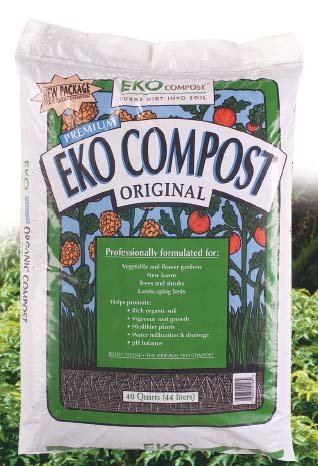While some gardeners boast having soil that is perfect without requiring them to invest time, work and money into improving the quality of the soil, most gardeners are not that lucky and have soil that contains too much sand, too many stones, too much clay and can nourish any plants only after being properly prepared.
The preparation process needs to start early in spring, when the soil is no longer frozen and when it has already dried a bit and it needs to involve not only mechanical tasks, such as surface cleaning, the removal of dried weeds and other unwanted things, including larger stones and breaking up the soil with a fork, but fertilization as well. When it comes to selecting the right fertilizer to ensure that the soil in your beds is of the right quality, the best options is surely an organic option, either an organic product that you buy in the garden store or compost that you make from the organic waste generated around the house. Here are some features that make organic fertilizers so great.

Feeding Your Plants with All They Need
Organic compost, whether you buy it in a bag or you prepare it in a bin, will contain all the macro-nutrients that your plants will need, including nitrogen, so important for plant growth; potassium, essential for root growth and drought resistance and phosphorous, necessary for hardiness. Organic fertilizers release their nutrient contents slowly – they are first broken down by the soil, then the nutrients are delivered to the plants as needed, without the risk of overfeeding or burning the plants.
If you choose organic nourishment for your garden, you need to have in mind that organic matter contains nitrogen only in concentrations up to 10%, which means that if you are planning to plant varieties that have excessive nitrogen needs, you might need to supplement your soil up to the right level.
Resistance to Diseases
The plants growing in soil that has been treated with organic compost are stronger and more resistant to the diseases that might appear even in the garden of the most cautious gardener.
Improved Soil Quality
Organic compost contains not only nutrients for the plants – it also contains fibers and other ingredients that improve the quality of the soil by ensuring it is able to retain the amount of water that is ideal for your plants and that it is able to efficiently drain the rest. Organic compost also promotes the activity of microorganisms, such as fungi and bacteria that are so important for the fertility of the soil by converting organic matter and the minerals in the soil into the nutrients and disease-fighting compounds that the plants in your garden need so much to thrive.
Soil treated with organic compost is not only a suitably moist, nutrient-rich soil – it is also a properly aerated soil. To be able to grow, your plant roots need air from the atmosphere and organic compost can ensure exactly that: soil that is porous enough, but not too porous (that would encourage premature drying) and that is able to provide your plants plenty of air to breathe and to grow.

